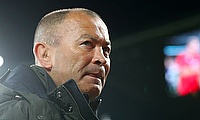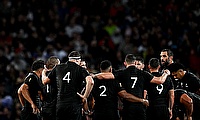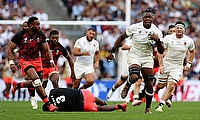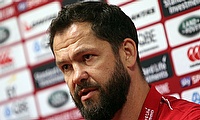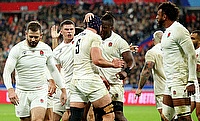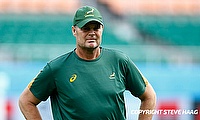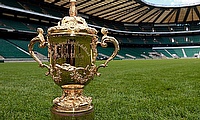Rugby World Cup History - the first World Cup
In less than a month's time the 2011 World Cup will kick off in New Zealand, but it is hard to believe that one of sport's most successful global events is not yet 25 years old.
Since its inception over a hundred years ago rugby has been played mainly in regional competitions such as the 6 Nations, which have been supplemented by tours to the opposing hemisphere. The only time that there had been a global competition prior to the World cup was in the Olympics from 1900 to 1924. For those wanting a bit of pub trivia the USA are the reigning Olympic rugby champions having won the 1924 tournament. Sadly, rugby was removed from the games and a competitive global competition was lost.
Step forward the Australian and New Zealand rugby unions who were the leading lights in pushing forward the idea of a world cup. The idea had been mooted many times from 1960'S onwards but was always dismissed quickly. It wasn't until the early 1980's that the idea really began to set it with proposed bids from both Australia and New Zealand and feasibility studies were completed. Then in March 1985 the IRB committee held the conclusive vote.
Initially the southern hemisphere nations and France voted in favour of the tournament and the home nations voted against with the argument that the tournament would bring in professionalism and destroy the amateur traditions of the game. After a tied first round of vote, one brave English delegate changed his vote, soon followed by a Welsh delegate, and the council voted in favour of the inaugural World Cup. It is interesting to consider that although they would not participate due to apartheid both South African delegates voted in favour of the tournament, had they not voted we still might not have a World Cup.
So the tournament was set for 1987 and was to be hosted jointly by Australia and New Zealand. There was no qualifying stage as nations would be invited to compete. These were 7 IRB members, South Africa not being invited due to apartheid, along with Argentina, Canada, Fiji, Italy, Japan, Romania, Tonga, USA and Zimbabwe. The 16 sides were split into 4 groups of 4 sides, with the winners and runners up progressing to the knockout stage.
So on the 22nd of May 1987, the Eden Park crowd witnessed New Zealand beat Italy by 70 points to 6 in the first ever World Cup game. The game was, as the scoreline suggests, a one sided affair and this was the case in many of the group games. As expected the 7 full IRB members progressed to the knockout stages with ease and were joined by Fiji who snuck through on try count at the expense of Argentina and Italy.
The quarter finals looked a foregone conclusion and this was largely true. New Zealand comfortably beat Scotland, while Australia and France beat Ireland and Fiji respectively. The final quarter final saw Wales playing England. Both sides had finished the 1987 5 Nations with a single win, England beating Scotland and Wales beating England. Wales went into the game as slight favourites having topped their group but the game could have gone either way. In the end Wales came out with a 16-3 win scoring three tries in the process.
Wales' reward was a semi final date with New Zealand. Unsurprisingly the All Blacks ran away with the game securing a 49-6 win to book their place in the final. Their opponents were to be France who had pulled off a narrow victory against co-hosts Australia. It was a fitting for the first tournament to see the leading Southern hemisphere side play the leading Northern hemisphere side.
Before the final could take place there was the matter of the 3rd place play-off between Australia and Wales. This provided the first big upset in rugby world cup as Wales stole victory in the final minutes. The final itself did not provide such an upset with the All Blacks being victorious by 29 points to 9 against the French. Tries came from Jones, Kirk and Kirwan with the rest of the All Black points coming from the boot of Grant Fox. The solitary French try, a memorable one at that, came from Pierre Berbizier.
Looking back the tournament is so far removed from the modern game. All the players were amateur and had to get time off their every day jobs to attend. The home nations even travelled down under together on the same BA flight and shared nights out during the tournament. There was controversy due to the fact that the All Blacks had done the unthinkable and trained for the tournament, which at the time wasn't considered to be part of the amateur spirit of the game.
The tournament also brought about a surge of media interest in the game. The tournament had viewing figures of around 300 million, this increased by almost 6 times to 1.75 billion by the 1991 tournament. Global brands saw the tournament had marketing potential and sponsors rolled in for the 1991 tournament.
It was clear that the initial concerns of the home nations would be realised, the tournament could not flourish without professionalism “ something that would be brought in by the third incarnation of the tournament in 1995. It may have only been 24 years ago, but the inaugural rugby world cup paved the way for whole sale changes to the game, something many of us may not realise.

